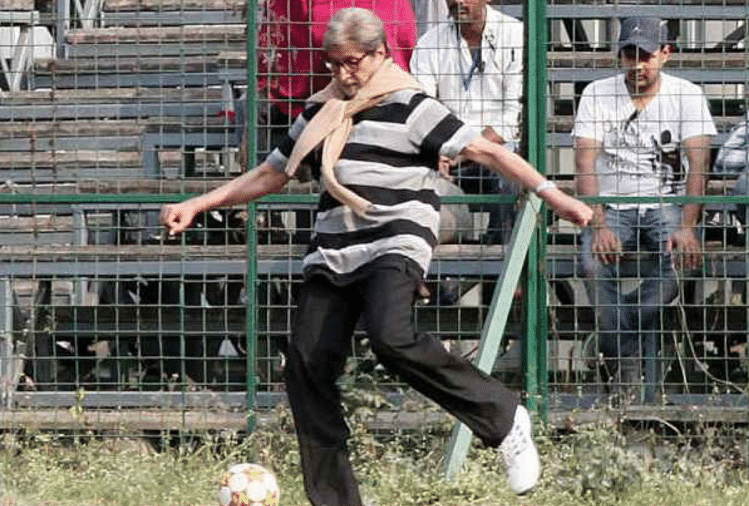On Wednesday, the Supreme Court refused to lift the stay on Amitabh Bachchan starrer Jhund.
The court also dismissed an appeal against the Telangana High Court order which had stalled the movie’s screening over copyright row.

A bench of Chief Justice S A Bobde and Justices A S Bopanna and V Ramasubramanian dismissed the appeal filed by petitioner Super Cassettes Industries (T Series) against the October 19 order of the high court which had refused to interfere with the trial court order restraining the release of the movie.
The bench says “The special leave petitions are dismissed. As a sequel to the above, pending interlocutory applications, if any, stand disposed of.”
The film is based on the life of Vijay Barse, the founder of NGO Slum Soccer, was scheduled to release this month on OTT platform Amazon Prime. The film was earlier scheduled to release in May but it was delayed due to the Covid-19 pandemic.
Nandi Chinni Kumar, a Hyderabad-based short-film maker has alleged copyright infringement against the filmmakers, and the filmmakers have refuted the allegations.

During the hearing, the apex court believed that it is an interesting case and it would direct that the trial will be completed within six months. However, Counsel appearing for the filmmaker said that the movie would be useless in six months and they were willing to pay the person in question.
The amount of Rs 1.3 crore was agreed upon between the parties but now they are not adhering to the agreement.
Senior advocate P S Narasimha, appearing for Kumar, and others said that the court may direct for disposal of the case which is pending in the trial court within six months. A trial court in Telangana had on September 17 stayed the release of the movie till the conclusion of the case. The decision of the trial court was upheld by the High Court on October 19.

Super Cassettes has said in their petition filed in the top court that they have invested a significant amount in production, distribution, marketing and promotion and have also created third party rights on the film which is to be broadcast on a wide scale both nationally and internationally.
“A cinematograph film is a perishable commodity and halting of the complex process that leads up to the release of the film at such a belated stage could prove to be fiscally ruinous for the petitioner and make the entire project financially unviable,” the plea stated.



